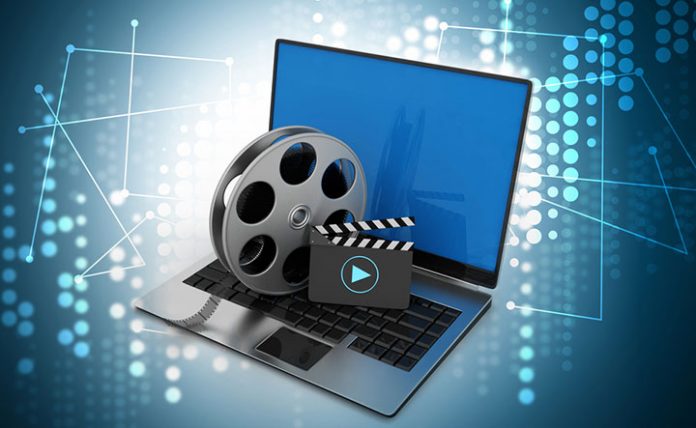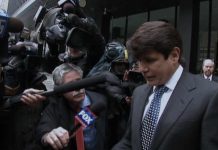This article is written by Upasana Dash from Madhusudan Law College, Odisha. This is an exhaustive article which deals with the various aspects of duties and obligations of the media.
Table of Contents
Introduction
Democracy holds four constituents i.e the government, the opposite, the judiciary, and the media. India is the largest democratic country in the world and the media has always played a major role to give shape to the wellbeing of the country. The contribution of the media is to spread awareness about several pieces of information and knowledge between the public. People believe that the media is the only genuine source of communication and information about the happening and non-happening of the event across the world. Media creates an abstract string attached between the government and the public by bringing lucidity between the government and the people. Media keeps us conscious concerning several spheres, for example, political, economic, international, sports, fashion, technological, etc. Imposing the real fact and providing unbiased news is one of the biggest maturity of the media.
Media works as the “voice of common people’’. Instead of getting biased by any political party when they become corrupt. Media has the potential to change the mindset of the society, but the competition for getting TRP (Television Rating Point) is creating depletion on the transparency and faith of getting authentic news continuously. Once there were limited sources to get news like radio, Doordarshan, etc.
Nowadays, there are more than 25 news channels in different languages, but it is quite difficult to distinguish their content from the news. To explore news of different aspects we have many sources; television, social media, radio, newspapers, Twitter. The media has neglected the ethics of journalism. They are focusing only on TRP at the cost of biased news.
Importance of media
It is rightly said, the media is the fourth estate in a democratic country. Democracy depends upon bias-free, neutral and active media. Media helps in making others think that people normally ignore certain things. The media has a key role in society by its power, it is considered as the third eye of society. The role of the media as a “watchdog” is a typical feature. Substantially, the role of the media is to monitor social issues and report daily events. Amartya Sen said that bias-free media can contribute a lot of information and facts which can possibly bring out a great impact on famine prevention. To constitute a better version of democracy, a free press and an active opposition should be there.
To deal with public matters, investigation, and some critical adjunct, journalists need to be well-trained and have genuine sources of information, so that the media can draw the actual occurrence before the public. The media need to pay attention to corruption, frauds, criminal cases, nepotism, favouritism without all possible inclination. No one is ready to expose the filtered truth. In some countries they influence the media to expose the corrupt loophole even against the system itself so that they can set aside such corruption from their government.
Though the media has performed with full honesty in a case exposing corrupt political parties, spread awareness among people, showed the tyrannical aspect of life, yet a lot has remained buried inside the box. The media should not affect any communal harmony and stir racial feelings. No such news will be spread by which senseless violence will be created in society.
In the past few years, the media has been showing news in favour of wrongdoing political parties, corrupt governments, or any other big organization with greed for more money. It has become very common nowadays, which is contrary to the ethics of journalism. Genuine information is not getting exposed due to some serious threat calls or in extreme cases, they put censorship on the broadcast. Sometimes, they are feeding disinformation to the citizens to portray a good public image and to create government propaganda.
Limitation of freedom of speech
Article 19(1)(a) of the Indian Constitution gives the right to freedom of speech or freedom of expression. Media holds the power through a medium of mass communication and can express it bluntly. But in Article 19(1)(a), freedom of the press is nowhere mentioned, here freedom of speech indicates to every individual or every citizen. Although, freedom of the press is necessary for a democratic country. Freedom of the press is to circulate one’s ideas or opinions. This also includes the right to share your views to publish them. Freedom of the press has certain restrictions or limitations; it is not absolute.
Sovereignty, integrity, and security of the State maintain public order and peace, democracy and moral values, defamation. No doubt freedom of speech should have the liberty to go against the government or to share ideas and impose the real truth but it must be subject to those restrictions which apply to freedom of speech and expression. Because freedom of the press flows from the freedom of speech and expression. The freedom of journalists may pressure democracy to some extent.
Impact of media on democracy
The media should be the voice of the public. Previously the media was quite informative in comparison to the current scenario. All the news channels are competing with each other to get more money and they are running behind TRP contradicting the ethics of journalism. All their information and facts are disillusion and misguidance, headlines are about caste, religion, biased political parties, reservation, which are creating disharmony in society and disrupting public order and peace.
Kathua rape case was in every news channel headline, but a rape incident also occurred in Madhya Pradesh, which was not mentioned by the media. Is the media taking different stands for the same crime? The reason behind this was the religion of the rape victim. Here, we can see discrimination based on religion.
Role of media: mutual hypocrisy or selective prejudicial
Indian media incline political parties which have ruined the freedom of the press. India is becoming the land of caste discrimination, communal hate, riots, rapes, and murders. Indian media specifically pinpoint cases to suit this set of stories. The Unnao custodial death case was on the headlines of most of the news channels whereas the death of a youth in custody in Kerala was set apart. Islamic terrorism in Jammu and Kashmir is broadcasting regularly. Writing and advertisement have also been hazy. Death of Muslims in the train was written as “lynching by Hindu”. But crowd Muslim men were written as “stone-petters”. Headlines have been discriminating by religion for the last 3 years.
Whereas BJP Minister Amit Shah announced it as an investigative venture but foreign trips of Sonia Gandhi were not there. The footage of Prime Minister Modi’s family is being shown but Congress President Rahul Gandhi is out of the media footage and said to be a violation of privacy. Cartoons of Sita-ram to provide fun are celebrated by some journalists but they will never dare to do the same thing with Prophet Mohamad. Biasness and hypocrisy cloaked together. Most of the journalists have their close connection with political parties to launch those political persons to gain positive publicity and whitewash the crimes they have committed before.
Even though The Hindu and Times of India, like most trusted newspapers, are equally vocal about their affiliation. Owner of The Hindu, N.Ram he has close links with the Chinese communist party. Malini Parthasarathy is a former editor of The Hindu, who is a close friend of Sonia Gandhi and never misses a chance to grease her. Vineet Jain, owner of Times of India has established a private university Bennett University in Uttar Pradesh which was fully backed by former CM Akhilesh Yadav. If we talk about ZEE news and India TV they are pet dogs of BJP. As we see Indian Media is the least trusted platform to get genuine information. In 2010, Nira Radia Tapes Scandal exposed by Journalist Barkha Dutt had enjoyed many trends but in later days, it was waived away completely.
TRP or news: what is noteworthy
Indian media is simply playing with the minds of citizens. Therefore four to five trending terms in news headlines like anti-muslim, anti-nationalist, deshdrohi, etc. In the Pulwama attack, the media was crying crocodile tears for their TRP race and consequently, TRP had risen within 30 days too without any specific news. Their editing work also becomes rubbish, they are putting irrelevant headlines ridiculously. Some major loopholes need to be rectified:
- Biased news,
- Instead of becoming the voice of the public. It is a media voice,
- Irrelevant TRP seeker content,
- Fake headlines to grab attention.
And when any news channel hosts debate programs, it is better than a comedy show. The guest speaks beyond the topic and the news hoster keeps shouting at those guests. More than one news channel had started competition since the 26/11 terror attack. Media is becoming a business platform for TRP.
What are the media trial and its problem
Without any judicial trial, when the media takes footage of a person by creating a guilty perception. The media trial first came into play in the Case of ROSCOE “Fatty” Arbuckle, 1921 though he was found not guilty in the verdict of the Court. But, the media had ruined all his reputation and his job by media trial. The media has declared him guilty.
In another case O.J Simpson (1995) by the course of the media trial, a large number of people get influenced by the news without any trial in the Court of law. During a media trial, they prejudice the character of a person. In Sheena Bohra’s murder case, accused Indrani Mukharjee’s reputation framed badly to influence people. Media trial is creating several questions on the ethics of journalism. There are many cases where the opinion of a media trial about the accused is contradicting in a judicial trial and a media trial is also violating the right to a fair trial. In Jessica Lal Murder’s case (2010), the media had almost declined the accused person guilty, but the court had discharged the accused.
Case list of media trial:
- Hickey’s Bengal Gazette (1780) first Indian Media Trial,
- Roscoe “fatty” Arbuckle case (1921),
- The first program (1967) media trial by TV,
- O.J Simpson (1995),
- Bijal Joshi Rape Case (2003),
- Priyadarshini Mattoo Case (2006),
- Arushi Talwar murder case (2008),
- Jessica Lal case (2010),
- Sushant Singh Rajout death case (2020).
In the case of Rhea Chakraborty v State of Bihar, the accused has raised the issue of media trial.
Regulation of media in India
Press Council of India is a statutory body and News Broadcasting Standard Authority self-regulatory organization. They impose certain guidelines to regulate media coverage. Chairman of PCI, the Supreme Court Justice Mr. M Katju said that all types of media are to be brought within the sphere of PCI, 1978.
The key role of PCI is freedom of the press to build a code of conduct for journalists and news channels, and receive complaints of violation of ethics of journalism. The decision of PCI is not subject to a court of law. Though PCI can summon news channels and journalists it cannot impose any punishment. Electronic media like radio, television, and the internet cannot be reviewed by PCI. Central Board of Film Certificate (CBFC) has the power to regulate broadcasting through media, Cable Television Networks (Regulation) Act, 1995, have the power to control the content of advertisements broadcast on television.
However, today the media is self-regulatory because the News Broadcasters Association created a Code of ethics to regulate the press. If someone violates the code of ethics, the NBA will penalize the concerned person for a sum up to rupees 1 lakh. Draft Broadcasting Service Regulation Bill, 2006 may ask license to broadcast any program through TV and radio.
Conclusion
Notwithstanding the nature of the verdict, whether a journalist can be held liable for contempt of court for his publications that are not objective is a fair trial? The power of the media seems unlimited, should lawmakers enact certain stringent laws on media, and the law must maintain harmony with the freedom of the press.
References
- Press Council of India,
- Regulation BillDraft Broadcasting Service, 2006,
- The Hindu,
- Times of India,
- Cable Television Regulation Act, 1995,
- Central Board of Film Certificate.
LawSikho has created a telegram group for exchanging legal knowledge, referrals and various opportunities. You can click on this link and join:
 Serato DJ Crack 2025Serato DJ PRO Crack
Serato DJ Crack 2025Serato DJ PRO Crack











 Allow notifications
Allow notifications


